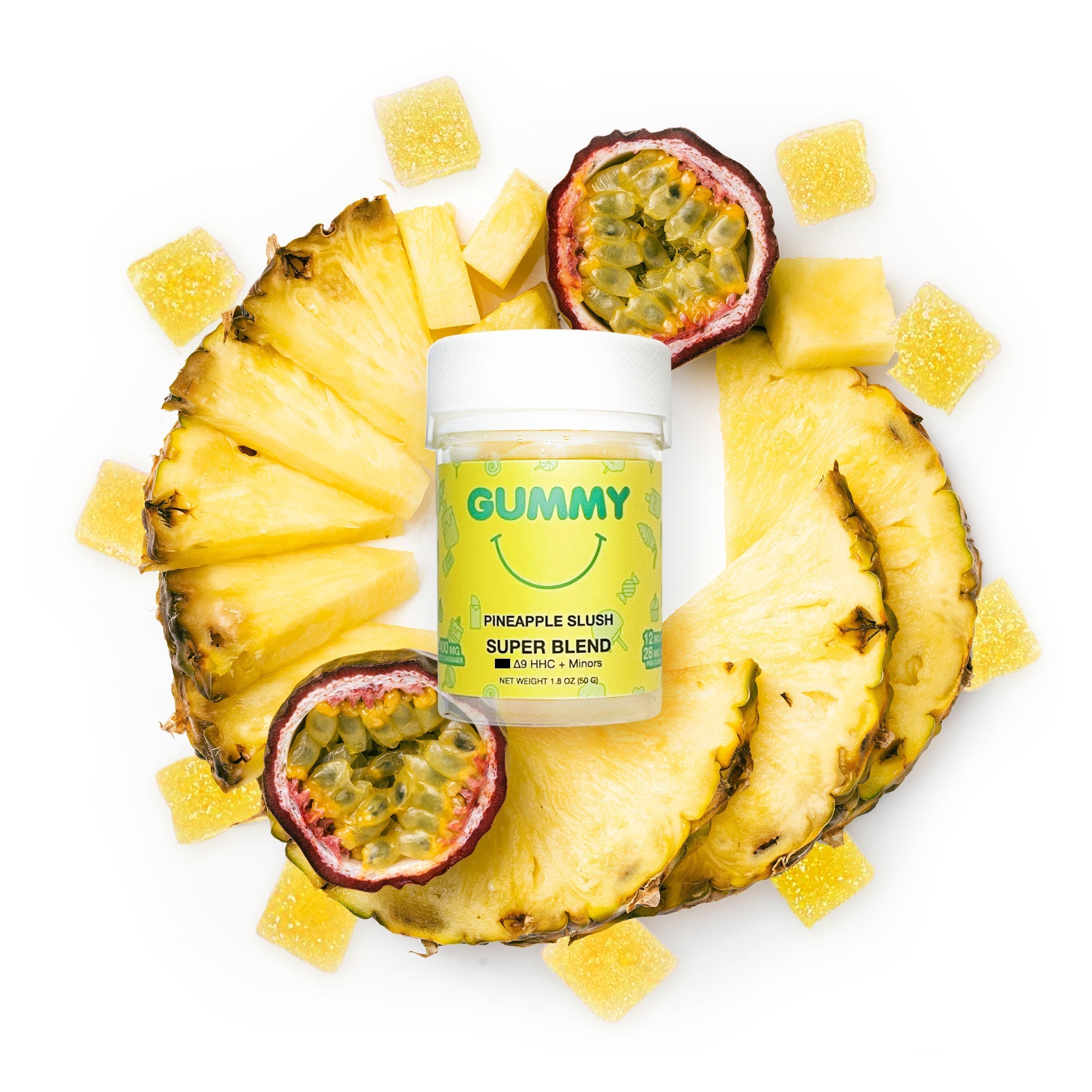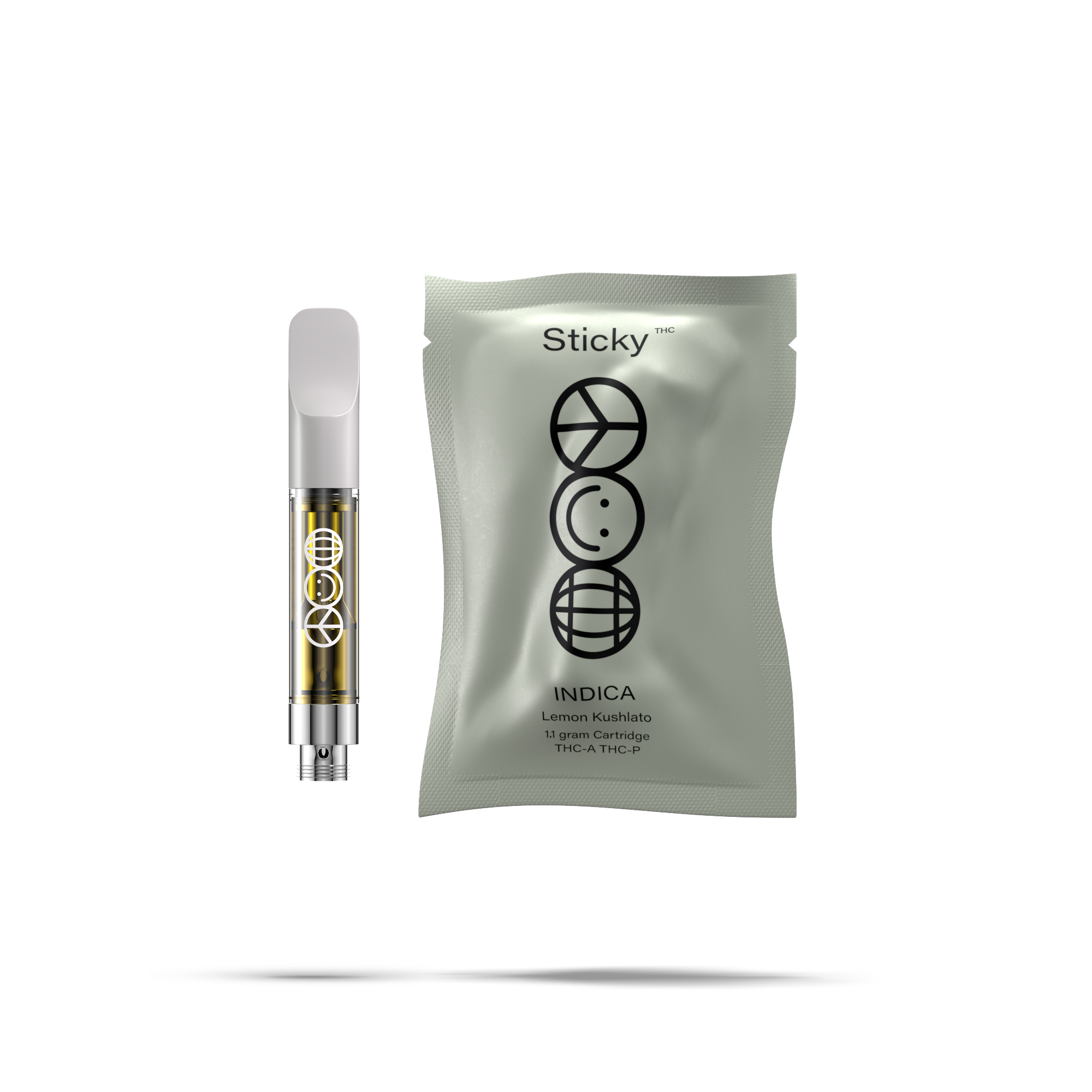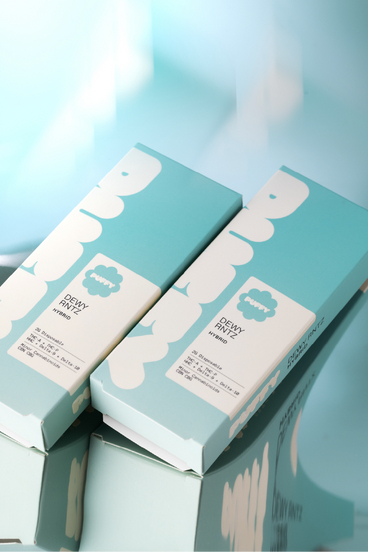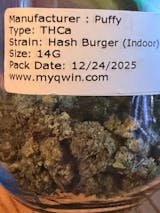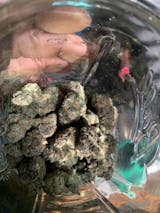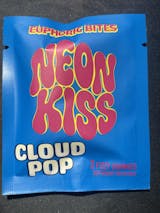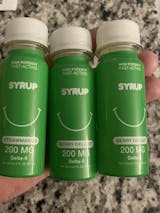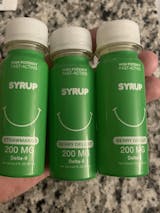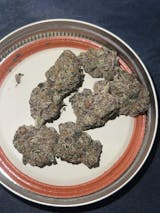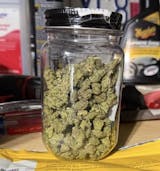Alabama Alaska Arizona Arkansas California Colorado Connecticut Delaware Florida Georgia Hawaii Idaho Illinois Indiana Iowa Kansas Kentucky Louisiana Maine Maryland Massachusetts Michigan Minnesota Mississippi Missouri Montana Nebraska Nevada New Hampshire New Jersey New Mexico New York North Carolina North Dakota Ohio Oklahoma Oregon Pennsylvania Rhode Island South Carolina South Dakota Tennessee Texas Utah Vermont Virginia Washington West Virginia Wisconsin Wyoming
Disclaimer: This guide is informational and does not constitute legal advice. The legality of THCA and related products can change over time, and this content may not reflect the most current developments. Please consult with a legal professional for advice specific to your location.
THCA (also THCa, THC-A, or THC A) is one of the latest alternative cannabinoids shaking up the hemp market. THCA, short for tetrahydrocannabinolic acid, is unique because it occurs naturally in hemp and cannabis plants and transforms into psychoactive THC when heated and smoked. High-THCA hemp products get people high and are broadly available nationwide.
But is THCA legal everywhere?
This guide explains THCA rules across the U.S. and where consumers can find THCA for sale.
THC vs. THCA
Most people are familiar with Delta-9 THC (or THC for short), the primary cannabinoid in cannabis and hemp responsible for the plant’s intoxicating effects, such as euphoria, relaxation, and pain relief. Federal law lists Delta-9 THC as a Schedule I controlled substance.
THCA is the acidic form of THC. THCA isn’t psychoactive in its raw state because it has a slightly different molecular shape that prevents it from binding to receptors in the brain and central nervous system as Delta-9 THC does.
However, applying heat to THCA chemically transforms its molecular structure into Delta-9 THC in a process called “decarboxylation.” Smoking, vaping, dabbing, or cooking cannabis for edibles are all sufficient ways to heat and “decarb” the THCA into THC, making it highly psychoactive. Learn more about the difference between THC and THCA in our guide.
How Is THC A Legal?
The DEA lists Delta-9 THC and all cannabis-derived compounds as Schedule 1 controlled substances. Before 2018, THCA would have fallen under that illicit designation. However, after the 2018 Farm Bill passed, everything changed.
The USDA’s Farm Bill distinguished cannabis from hemp plants, legalizing all hemp-derived products that contain less than 0.3% Delta-9 THC by dry weight. To ensure compliance, hemp farmers must submit hemp samples for pre-harvest testing to accredited labs. Labs must factor in THCA’s effect on total THC content by testing the plant post-decarboxylation (heating).
Thus, THCA products are allowed when derived from hemp, assuming the plant and product contain less than 0.3% Delta-9 THC. As a result, hemp companies and brands sell products with high THCA levels, such as Qwin’s new line of THCA flowers and vapes.
THCA Flower
THCA flower is a new term for smokable hemp bud that contains high concentrations of THCA (around 20%.) and compliant Delta-9 THC levels below 0.3%. When consumers heat THCA flower for smoking or vaping, these products produce the same incredibly powerful high as normal THC.
- A heavy mental and physical buzz
- Euphoria
- Relaxation
- Stress and anxiety relief
- Pain relief
THC A Legal Limit
THC A has no official legal limit. Laws that govern THCA include the USDA’s Farm Bill, the DEA’s Controlled Substances list, and state hemp rules.
The USDA regulates potency testing for hemp plants before harvest, requiring post-decarboxylation analysis. However, after harvest, the USDA no longer has regulatory control. Finished goods fall under the DEA’s jurisdiction, and the DEA recently clarified that labs must account for THCA when measuring hemp’s delta-9 THC content. This clarification does not technically differ from the USDA’s requirements but may impact how labs test finished hemp products in the future.
State hemp programs and testing rules also vary. For example, THCA is legal in Tennessee but not in Idaho. In some states, like Arizona, the law is murky and could go either way.
Here is a breakdown of the THCA legal status in each state.
THC A Legal States
THCA appears permissible in the states below as long as the pre-harvested hemp passes total THC testing and the final product tests below 0.3% Delta-9 THC.
Alabama
Alabama Code 2-8-381 aligns with federal law and legalizes all hemp products with no more than 0.3% Delta 9-THC.
Arkansas
The Arkansas Industrial Hemp Program applies the Total THC formula to hemp-derived product testing, recognizing delta-9 THC as “THC + 0.877*THCA.” THCA products that pass compliance testing are legal in the state.
Arizona (gray area)
Arizona law recently restricted the sale of hemp-synthesized intoxicants like Delta-8 THC. However, it’s unclear whether that law applies to THC-A, given that the compound occurs naturally. For now, Arizona’s THCA rules are in a gray area.
Delaware
THCA may be allowed in Delaware following the passage of Senate Bill (SB) 266. The Bill aligns with the Farm Bill rule that hemp and hemp-derived products are legal, assuming they don’t cross the 0.3% threshold.
Florida
Florida’s State Hemp Program says hemp must have “a total delta-9 tetrahydrocannabinol concentration that does not exceed 0.3 percent on a dry-weight basis.” Florida has not factored THCA concentration in product potency testing requirements to date.
Georgia
THCA is likely legal in Georgia. Language in Georgia’s House Bill 213 says hemp plants must align with the federally defined THC concentration of no more than 0.3% “whether growing or not.”
Illinois
Illinois’ Industrial Hemp Act follows federal law, saying industrial hemp is legal “with a delta-9 tetrahydrocannabinol concentration of not more than 0.3 percent on a dry weight basis…and includes any intermediate or finished product made or derived from industrial hemp.”
Indiana
Indiana’s Senate Enrolled Act Number 516 says, “Hemp must test below 0.3% THC,” which means that THCA products can be allowed within the legal limits. However, Indiana explicitly bans smokable hemp flower.
Kansas
Kansas Senate House Bill 2167 requires strict testing to ensure THC concentrations in hemp products remain under 0.3%. This would also apply to THCA. The Bill bans certain hemp products, including hemp cigarettes, cigars, teas, smokeless materials, and liquids or solids for vaporizing devices. Additionally, ground hemp and leaf material cannot be sold to unregistered entities. Together, these rules severely limit THCA access in Kansas.
Maine
Maine legalized “any variety of Cannabis sativa L. with a delta-9-tetrahydrocannabinol (THC) concentration that does not exceed 0.3% on a dry weight basis.” THCA products are available in Maine if they adhere to the requirements.
Maryland
Maryland legalized cannabis plants “and any part of such plant, whether growing or not, with a delta-9 tetrahydrocannabinol concentration that does not exceed 0.3% on a dry weight basis.”
Mississippi
THCA is legal under the Mississippi Hemp Cultivation Act (Senate Bill 2725) if it contains a maximum concentration of 0.3% Delta-9 THC on a dry weight. Mississippi law enforces strict THC testing and compliance, so THCA products are available but regulated.
Missouri
Missouri’s hemp law exempts “industrial hemp, which is defined as Cannabis sativa L. containing no greater than 0.3% THC, from the definition of marijuana and the list of controlled substances.” It has not passed measures to restrict THCA access, making these products permissible in the state.
Nebraska
Nebraska’s LB §2-5701 says, “Plants grown would be required to be submitted for testing to determine whether they contain less than 0.3 percent THC.” It does not have additional testing rules for final hemp products, making high-THCA flowers and extracts available in the state.
New Hampshire
New Hampshire HB 459-FN law aligns with the Farm Bill’s testing rules and does not restrict total THCA in final products.
New Jersey
The New Jersey Hemp Program defines hemp as “low (less than 0.3%) in tetrahydrocannabinol (THC)” and does have additional restrictions in place that would otherwise restrict THCA.
New Mexico
New Mexico law specifically legalized all “viable plants and plant material over three-tenths percent and less than five percent THC.”
Nevada
Nevada’s Industrial Hemp Program aligns with the Farm Bil, allowing THCA products that pass pre-harvest compliance testing. Consumers can readily find THCA products for sale in Nevada.
North Carolina
North Carolina Governor signed the North Carolina Farm Act of 2022 into law, which allows hemp farming to continue legally after the state's five-year pilot program ended. The law defines hemp as containing 0.3% THC or less and permanently exempts hemp and hemp-derived products from the state's controlled substances act, aligning with the 2018 federal Farm Bill. THCA products are likely allowed in North Carolina as long as they meet the legal definition of hemp.
Ohio
Ohio law notes that “hemp must contain less than 0.3% THC.” It includes THCA in the total calculation, and products that pass can be legally sold.
Oklahoma
Oklahoma states that “by law, industrial hemp must have less than 0.3% THC.” It aligns with the Farm Bill and allows hemp-derived THCA that passes compliance testing.
Pennsylvania
Pennsylvania 2016 Act 92 refers to the Farm Bill and has not banned THCA.
South Carolina
South Carolina’s Farming Act defines “industrial hemp as cannabis with no more than 0.3 percent THC.” It does not have further THCA restrictions on the books.
South Dakota
South Dakota’s 2019 House 1191 says hemp products containing a maximum THC concentration of 0.3% are legal in the state. Although it bans
Tennessee
Tennessee’s Senate Bill Number 357 says, “THC means delta-9 tetrahydrocannabinol,” and aligns with the Farm Bill’s potency testing rules. Compliant THCA products are allowed in Tennessee.
Texas
Texas law follows the Farm Bill, legalizing hemp products “with a delta-9 tetrahydrocannabinol concentration of not more than 0.3 percent on a dry weight basis.”
Vermont
The Vermont legislature says legal hemp includes “all parts of the plant, whether growing or not, with a delta-9 tetrahydrocannabinol [THC] concentration of not more than 0.3 percent on a dry weight basis.” This rule aligns with the Farm Bill and allows THCA products that pass compliance testing.
Virginia
Virginia’s Chapter 653 says legal hemp “shall have a THC concentration, not more than 0.3 percent on a dry weight basis.” Recent laws restrict synthetic hemp-derived cannabinoids, but THCA is not included in the ban.
Washington
Washington’s Senate Bill 5276 legalized hemp in accordance with the Farm Bill, specifying “all parts of the plant, whether growing or not, with a delta-9 tetrahydrocannabinol [THC] concentration of not more than 0.3 percent on a dry weight basis.”
West Virginia
West Virginia’s House Bill 2694 followed the Farm Bill but recognized “industrial hemp as having no more than 1 percent THC as an “agricultural crop.”
Wisconsin
Wisconsin's hemp production law follows the Farm Bill, saying, “If the THC concentration rises above the legal limit of 0.3 percent dry weight, the crop must be destroyed.”
Wyoming
Wyoming law aligns with the Farm Bill requiring all industrial hemp license holders to verify all parts of the hemp plant do not exceed the allowable three-tenths of one percent (0.300%) THC.” There are no additional laws restricting THCA product access.
Where Is THC-A Banned or Severely Restricted?
There are no specific laws mentioning THCA or banning it. But some states have stricter “Total THC” testing rules for plants and finished goods that account for THCA in the 0.3% THC limit.
Alaska
Retailers in Alaska freely sold psychoactive hemp products until November 2023, when lawmakers updated the state's regulations. The new rules ban the sale of intoxicating hemp products and require full-spectrum formulas containing THCA to get approval from the Cannabis Control Board before selling in the state.
California
Intoxicating THCA products are effectively banned in California. The total THC calculation in the state includes all forms of THC, such as Delta-8, THCA, and Delta-10. California also requires comprehensive testing and lab reports, called Certificates of Analysis, to verify THC levels. These rules mean that intoxicating THCA products are likely banned.
Colorado
High-THCA hemp products are likely not allowed in Colorado outside of cannabis channels. Products that contain intoxicating cannabinoids can only be sold with a state license.
Connecticut
High THCA hemp products are likely not allowed outside of cannabis channels in Connecticut. Regulations classify hemp products with significant levels of any form of THC as illicit cannabis.
Hawaii
Hawaii's regulations do not allow high THCA hemp products outside of licensed cannabis channels. Under the state's laws, hemp products must have less than 0.3% total THC, which includes THCA in the calculation. Additionally, only hemp products containing naturally occurring cannabinoids are permitted. Still, many people report that high-THCA hemp products are widely available in Hawaii.
Idaho
Idaho explicitly bans all hemp derivatives and forms of THC other than pure CBD.
Iowa
Iowa law imposes restrictions on THCA products by regulating hemp products with strict total THC limits. While THCA itself is not explicitly mentioned, the law defines hemp as having no more than 0.3% total THC on a dry weight basis, which includes THCA that converts into Delta-9 THC when heated. Inhalable products like smokable hemp are specifically prohibited, meaning that any hemp product intended for inhalation, including THCA flower, would be banned regardless of the total THC content.
Kentucky
Kentucky law 902 KAR 45:190 restricts hemp-derived cannabinoid products. Any THCA product must have less than 0.3% total THC (which includes THCA) by dry weight to be legally classified as hemp. Additionally, the sale of intoxicating cannabinoids like THCA is tightly regulated, with only licensed processors and retailers allowed to distribute these products. All such products must meet strict testing, labeling, and packaging standards.
Louisiana
Delta-8 isn’t outright illegal in Louisiana, but psychoactive hemp products may not be available for purchase. In the state, adults 21 and older are allowed to possess unlimited amounts of hemp-derived CBD, as long as it contains no more than 0.3% Delta-9 THC and no more than 1% total THC, including THCA, Delta-8, and Delta-10. Additionally, products must follow a limit of 8 mg of THC per serving.
Massachusetts
Massachusetts law now requires testing for “the combined percent of delta–9–tetrahydrocannabinol and tetrahydrocannabinolic acid in any part of the plant of the genus cannabis regardless of moisture content.” This rule makes passing compliance testing extremely difficult, although reports indicate that intoxicating hemp products are prevalent in Massachusetts.
Michigan
The Michigan law classifies THCA under the broader definition of THC. For hemp products to be legal, they must contain less than 0.3% THC, which includes THCA on a dry-weight basis. Products exceeding this threshold are regulated as marijuana and subject to marijuana laws.
Minnesota
Minnesota applies the “Total THC” formula to hemp testing: "The final regulatory determination will be based on the total potential THC post-decarboxylation, which is equal to delta-9 THC + (THCA x 0.877) if the sample is analyzed via HPLC methodology.”
Montana
Montana law indicates “Total THC” testing as “the value determined after the process of decarboxylation,” saying “total Delta-9 THC % test results of mature flowers from mother plants.”
New York
New York has explicit hemp cannabinoid product regulations that define "Total THC" to include both Delta-9 THC and THCA. Products exceeding the 0.3% limit are regulated as cannabis and can only be sold through licensed dispensaries. This rule means that high THCA hemp products are likely banned in the state.
North Dakota
North Dakota previously defined hemp as cannabis with a total THC level not exceeding the federal limit of 0.3% THC. However, the state’s Agriculture Department recently enacted rules that explicitly ban THCA products and any potential THC precursors or variants to prevent the sale of psychotropic substances.
Oregon
Oregon law follows “Total THC” rules for hemp-derived products and considers “the molar sum of THC and THCA [tetrahydrocannabinolic acid]” when testing hemp products.
Rhode Island
Rhode Island applies “Total THC” testing, applying “the combined percent of delta-9 tetrahydrocannabinol and tetrahydrocannabinolic acid in any part of the plant cannabis regardless of the moisture content.”
Utah
THCA hemp products are subject to strict regulations in Utah. The state requires all cannabinoid products, including those with THCA, to be registered annually with the Utah Department of Agriculture and Food (UDAF). Products must provide a Certificate of Analysis (COA) demonstrating compliance with testing standards. Products cannot contain more than 0.3% total THC, including THCA, on a dry weight basis. Additionally, THC and its analogs are limited to 5 milligrams per serving and 150 milligrams per package. Smokable hemp and products appealing to children are not allowed.
THCA Legality: The Bottom Line
THCA rules, federally and state-by-state, are extraordinarily complex and ever-changing. Consumers must stay updated with local rules and only purchase THCA from reputable brands that provide Certificates of Analysis confirming their products comply with total THC limits.

Elena Schmidt 
Writer
Elena Schmidt is a writer, entrepreneur, and yoga teacher in Austin, Texas. She holds a journalism degree from the University of Miami and spent nearly a decade in editorial and content management for the health and beauty sectors. Today, Elena runs a boutique content marketing agency targeted towards brands that matter. Elena has found her passion supporting industries like plant medicine, cannabis, psychedelics, and wellness. She has written countless articles on these subjects and is passionate about spreading the word to those who need it most.


